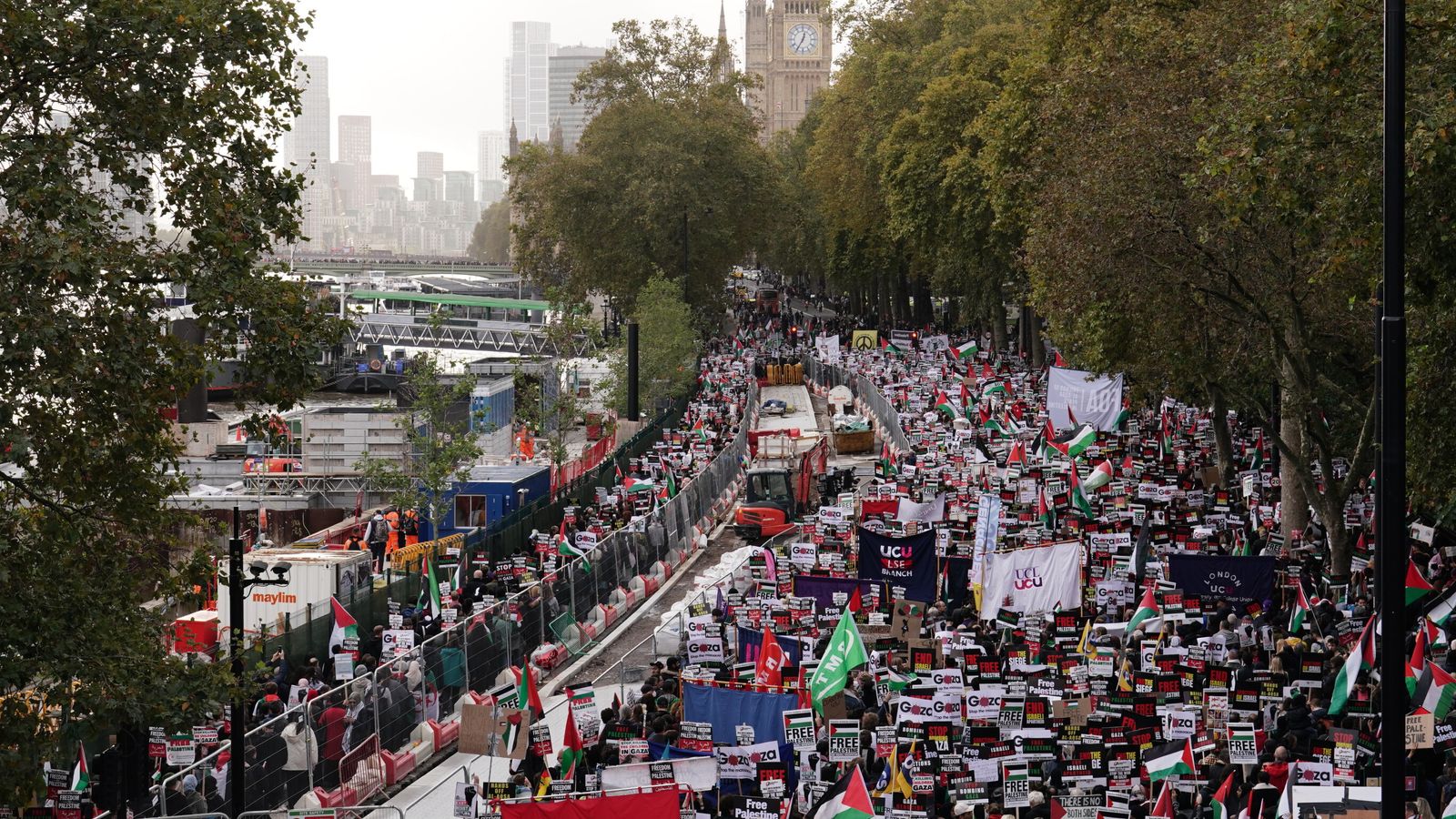The Metropolitan Police have promised to crack down on lawbreakers at pro-Palestinian protests, as the prime minister condemned plans for a march on Armistice Day as “provocative and disrespectful”.
Rishi Sunak wrote to Met commissioner Sir Mark Rowley, there is “a clear and present risk” that war memorials such as the Cenotaph “could be desecrated”.
Organisers have promised to avoid the Whitehall area, while no march is currently planned for Remembrance Sunday, when a high-profile event at the Cenotaph is attended by royals, senior politicians and veterans.
Suella Braverman backed her boss, saying it was “entirely unacceptable to desecrate Armistice Day with a hate march through London”.
The home secretary said there is “an obvious risk of serious public disorder, violence and damage as well as giving offence to millions of decent British people”.
But she said she has “full confidence” in the Met, who have faced criticism over the response to the demonstrations, which have seen hundreds of thousands of people take to London’s streets amid the ongoing Israel-Hamas conflict.
Police said they are working with organisers to avoid any disruption to remembrance events and will use all legal powers available.
Ben Jamal, director of the Palestine Solidarity Campaign, which is organising the march, said it wouldn’t start until nearly two hours after the two-minute silence in commemoration of the war dead.
He said the group are “deeply alarmed” by statements from the top of government, which are “deeply irresponsible” and “are encouraging the calls from far-right activists and commentators inciting action on the streets to stop the protests taking place”.
The row comes ahead of another march calling for a ceasefire this Saturday, while action by the Just Stop Oil group, along with seven football matches and bonfire night events, will also stretch police resources.
Some 1,600 Met officers will be on duty, while 170 more have been drafted in from other forces, Commander Karen Findlay said.
She told reporters they will be taking a “robust approach” towards anyone suspected of inciting racial hatred or committing potential public order or terrorism offences as they “look to sharpen our police response”.
The senior officer said faster analysis of social media would help officers “make arrests in big crowds”, while facial recognition technology will be used retrospectively to identify people suspected of committing crimes.
“We fully recognise the insensitive and inflammatory nature of some of the incidents we are seeing,” she said.
“We are looking for a faster response.”
Some 133 people have been arrested in relation to the protests, with 26 of those charged, while police said they have identified five people following an appeal including the release of 12 images.
Read more from Sky News:
Zara Aleena’s murderer wins appeal for shorter sentence
‘Violent’ winds on the way as weather warning extended
Be the first to get Breaking News
Install the Sky News app for free
Commander Findlay said the fourth weekend of protests comes against a background of rising community tensions and a spike in hate crime.
There have been 554 crime reports and 657 reports of antisemitic incidents since 1 October, compared to 44 and 49 respectively in the same period last year.
Police have also seen a rise in Islamophobia, with 220 reported offences and 230 reported incidents, compared to 70 and 71 respectively last year.
Commander Dominic Murphy, who leads the Met’s Counter Terrorism Command, said more than 1,800 referrals have been made online, with 350 of those progressing for decisions over whether a crime has been committed and several counter-terrorism investigations launched.







